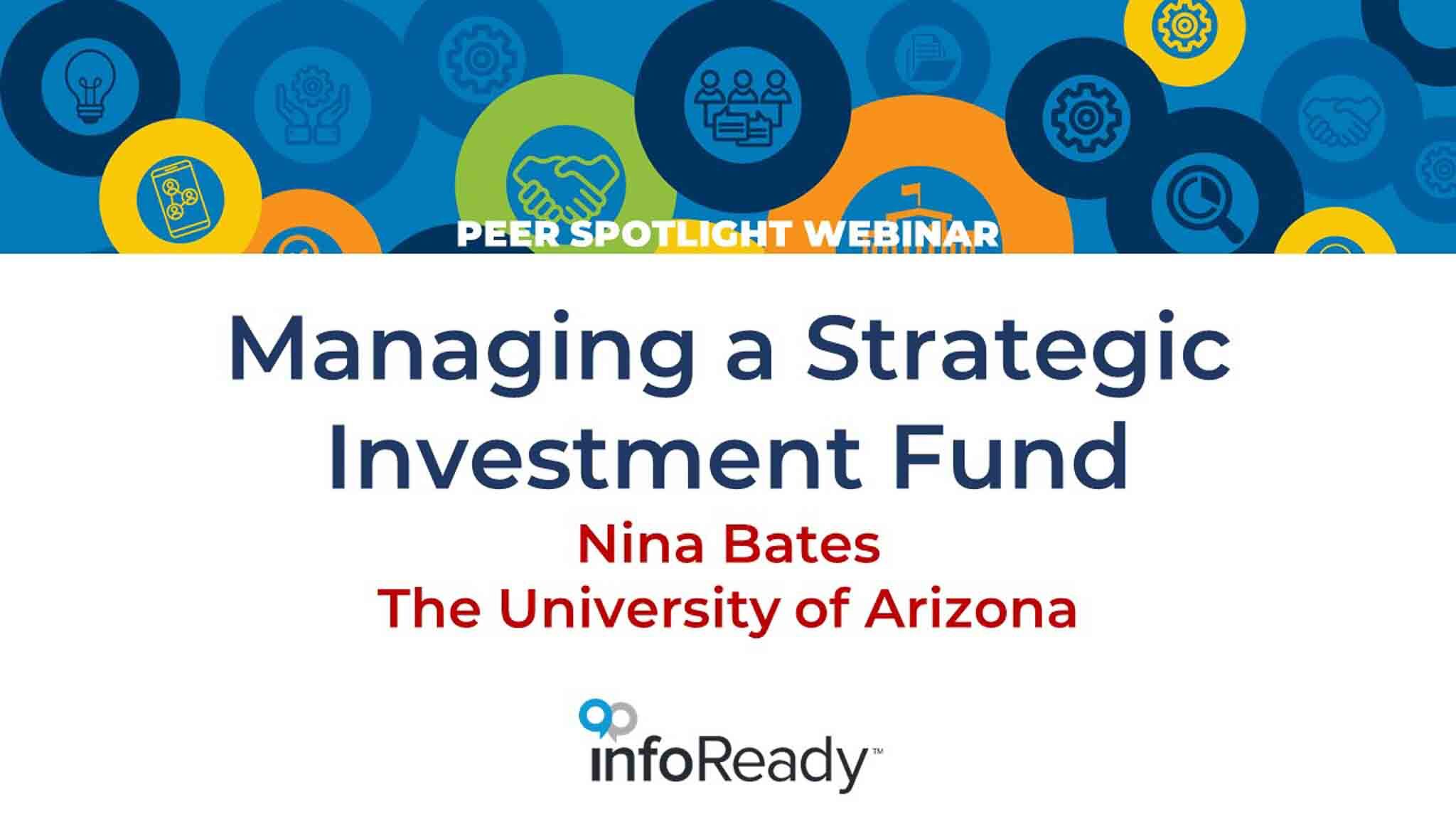In a Peer Spotlight webinar, InfoReady's Carlos Moncada chatted with Sharon Parks, Director of Undergraduate Research Opportunities Program (UROP) at University of California, Irvine and Kevin O'Kelly, Assistant Vice President of Research Compliance at University of South Dakota about their dynamic undergraduate research programs.
Summary: Undergraduate research programs are crucial for shaping students' academic journey, but managing them efficiently can be daunting. In this blog post, we'll explore insights from two experts, Sharon Parks and Kevin O'Kelley, on streamlining undergraduate research programs. Their perspectives shed light on effective approaches, ensuring fairness, overcoming financial constraints, personalization, and embracing flexibility.
Ensuring Fairness in Program Evaluation
Sharon Parks emphasizes the significance of fair evaluation in undergraduate research programs. Utilizing tools that provide numerical rankings and scores is essential to understand each student's performance comprehensively. To ensure fairness, Sharon's institution employed a faculty member skilled in statistical analysis. However, she acknowledges the need for alternative systems for in-person symposiums due to logistical challenges.
Overcoming Financial Constraints
Kevin O'Kelley shares his experience of establishing undergraduate research programs with limited funding in a small institution. He highlights the value of open communication and collaboration with stakeholders, including deans and faculty members. By taking on additional responsibilities and relieving burdens, Kevin garnered support for the program. His approach emphasizes tailoring strategies to fit the unique dynamics of each institution.
Taking a Personalized Approach
Kevin emphasizes the significance of personalization in creating successful undergraduate research programs. In small institutions, individual meetings with stakeholders are essential to understand their needs and expectations. By aligning program goals with the institution's vision, Kevin successfully garnered support and resources. Building relationships and customizing strategies to suit specific needs are key.
Embracing Flexibility and Adaptability
Both Sharon and Kevin stress the need for flexibility in managing undergraduate research programs. Sharon proactively sought alternatives when certain evaluation systems had limitations. Kevin highlights the ever-changing nature of their program, adapting to unique circumstances. Embracing flexibility allows for continuous improvement and ensures the program remains relevant and effective.
Conclusion
Streamlining undergraduate research programs can be challenging but rewarding. Insights from experts like Sharon Parks and Kevin O'Kelley provide valuable lessons. Prioritizing fairness in evaluation, fostering collaboration, personalizing approaches, and embracing flexibility are key to creating impactful programs. As we enhance these programs, learning from the expertise of professionals dedicated to nurturing the next generation of researchers is essential. By implementing these insights, institutions can streamline undergraduate research programs and provide students with valuable opportunities for growth and success.
Watch the full webinar on our YouTube channel.




